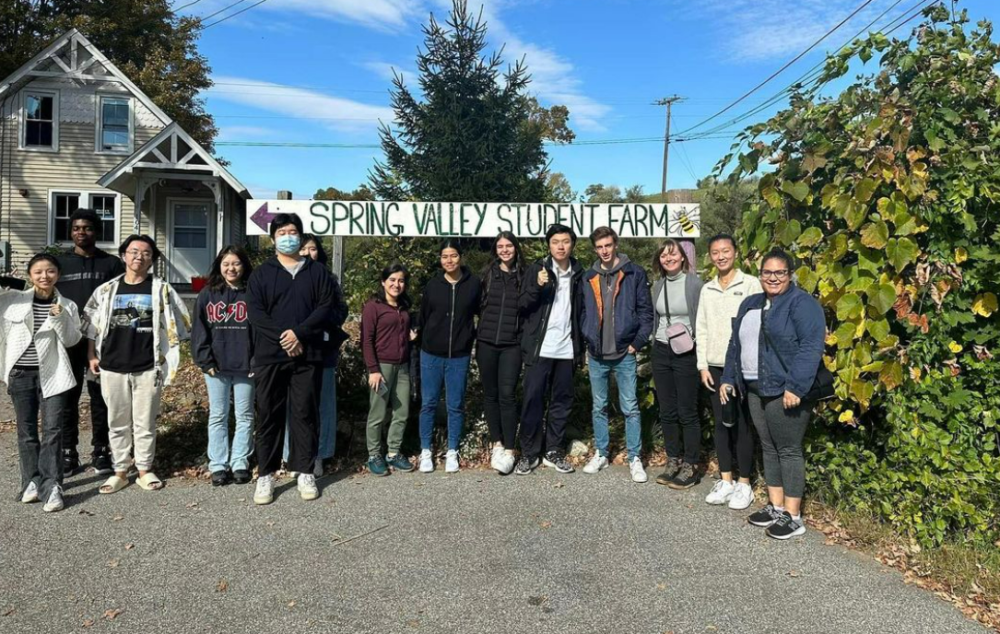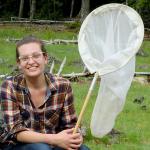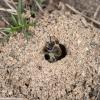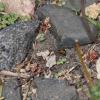A version of this blog originally appeared on Bee City USA.
2022 was another notable year for Bee City USA and Bee Campus USA. We celebrated our 10-year anniversary, debuted new logos, and added almost 50 new affiliates to grow the network beyond 325 affiliates—and in doing this expanded into two new states, Arizona and Oklahoma, plus Puerto Rico. It was also my first year overseeing Bee City!
All year long, I was so heartened to learn how many smart, thoughtful, dedicated people are working to protect their pollinator neighbors throughout the U.S. I also had the honor of seeing firsthand the amazing work that is being done during a visit to six of our affiliates in Georgia, touring their beautiful pollinator-friendly outdoor classrooms, flower gardens, parks, and rooftop farms. I hope to meet more affiliates in person in the coming months.
The commitments of Bee City and Bee Campus are centered around three basic ideas: create pollinator habitat, reduce pesticides, and spread the word. We provide informational resources and support, but the strength of this movement lies in the enthusiasm, creativity, and talents of each of our affiliates. Below is a series of snapshots pulled from the annual reports from our wonderful city, county, college, and university affiliates. If you want to see more of the impressive achievements, you can browse the 2022 annual reports.
We hope you enjoy celebrating the accomplishments of all the affiliates and find inspiration to try something new to grow your pollinator conservation community. We are all so grateful to the countless staff, students, and volunteers who make their Bee City USA and Bee Campus USA initiatives so impactful and fun. Thank you!
Bee City USA and Bee Campus USA 2022 stats at a glance
- Pollinator-related community events: 1,735
- Attendees at pollinator conservation events: 258,343
- Pollinator habitat projects implemented: 1,625
- Acres of pollinator habitat created or enhanced: 12,901
- Pollinator habitat volunteers: 19,025
- People engaged in pollinator conservation: 316,719
- Number of affiliates at end of 2022:
- Bee Cities: 170
- Bee Campuses: 157
- Total: 327
Creating and enhancing pollinator habitat
In Talent, OR: “June 30th we celebrated the unveiling of the World’s Smallest Park. It comprises of an area of 374 square inches, in the form of a hexagon and contains 5 plants: mock orange (the only hybrid), monardella, lewisia, pussytoes and yellow-eyed grass (all natives). It emphasizes that even a tiny space can provide a pollinator habitat. Six Bee City members and one friend created, under the tutelage of Karen Rycheck – the queen of mosaics – and in conjunction of the Talent Maker City, 7 hexagonal mosaic stepping stones. These surround the park/garden and are show stoppers since we used pollinator motives. A tiny wrought iron fence surrounds the immediate garden. We further enhance the quality of this park by administering the complete set of biodynamic applications and BD compost. At the unveiling we gave a talk on the importance of nurturing native pollinators and handed out seed packages of native flowering plants. The local press (TV stations and print media) covered the event. We were even featured during NBC’s World News. The event was attended by approx. 50 – 60 people.”

Reducing pesticides
In Westminster, CO: “At the Standley Lake Regional Park & Wildlife Refuge the use of any type of pesticide is prohibited. Other methods are used to ensure the safety of the wildlife and high quality of the lake’s water. Goats are commonly used to get rid of noxious weeds and other unwanted plants…Weeding with immediate seeding and planting has become a useful method to prevent the re-growth of invasive plants. This method is often used in Standley Lake’s pollinator garden.”

Pollinator awareness events
In Lexington, MA: “the Lexington High School Bee Club and Lexington Bee Company received a grant from the Lexington Field and Garden Club to package and distribute hundreds of packages of native plant seeds. The residents of Artis Memory Care assisted in creating attractive seed packages.”
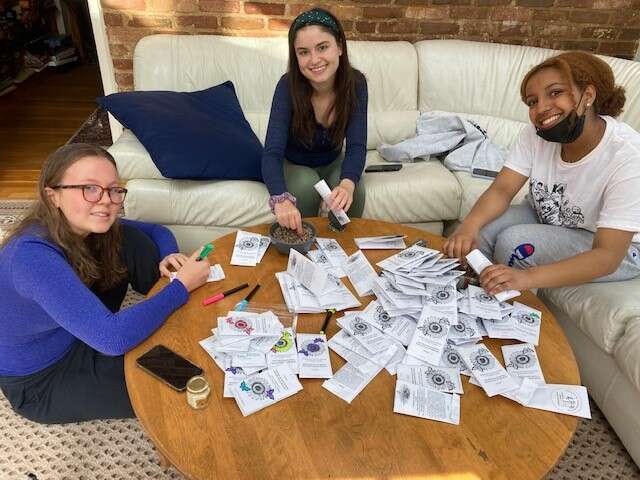
Courses and continuing education
Medical University of South Carolina, SC: “Healing Through Nature…Planting in accessible raised bed at the MUSC Urban Farm…[The] mission of the MUSC Urban Farm to connect eating healthy with overall health.” MUSC hosted the Horticulture Therapy Institute Fundamentals 4-day long class for 20 students from around the country. Campus tours for the students included several pollinator gardens and the MUSC Urban Farm. Discussions focused on how pollinator habitats play an important role in Horticulture Therapy.” Credit: Bee Campus USA Medical University of South Carolina, SC Committee

Campus service learning
University of Connecticut, CT: “Spring Valley student farmers hosted the UConn American English Language Institute to discuss the number of sustainable and organic practices at the farm.” Credit: Bee Campus USA University of Connecticut, CT Committee
